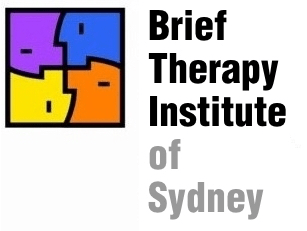Feedback-informed treatment
- 2 May 2024
- Michael Durrant
How does Feedback-Informed treatment fit with Solution-Focused Brief Therapy?
The “common factors”
In 1936, researcher Saul Rosenweig argued that factors common to different therapy models have a greater importance to client outcome than the model itself. He used the term “the Dodo bird effect” as a sideways reference to Alice in Wonderland (After a race in which it had not been clear how the winner would be judged, the Dodo bird proclaimed, “Everybody has won and all must have prizes.”).
In 1992, researcher Michael Lambert estimated that “extratherapeutic” factors having nothing to do with formal therapeutic work account for roughly 40% of therapeutic progress, that therapeutic relationship factors (“the alliance”) account for roughly 30%, client expectation or mindset and what is known as “the placebo effect” account for roughly 15%, and techniques unique to specific therapy models account for roughly 15%. These studies sparked a new wave of interest and engagement in research on common factors.
It is worth noting that Lambert is quite clear that the figures are his 'educated guess' and are not based on research, before or since; however, people have continued to quote the numbers as if they had been verified. Wampold's more recent work (2015) gives more accurate figures based on real studies, not guesswork.
Wampold proposes a “contextual model” and suggests that there are three common pathways that contribute to therapeutic change: a) the “real” therapist-client relationship, b) the creation of expectations and c) the enactment of health-promoting actions. There is a great emphasis on the centrality of the therapeutic relationship.
Feedback-Informed Treatment
In the 1990s and early 2000s, Scott Miller, along with Mark Hubble and Barry Duncan, wrote a great deal about “what works” in psychotherapy, focusing on “the common factors” that contribute to therapy success rather than on any particular model or approach. This culminated in their 1999 book, The heart and soul of change: What works in therapy, which championed the importance of “the common factors” in therapy success, including the therapeutic alliance. Previously, Scott Miller had been a key member of staff at the Brief Family Therapy Center in Milwaukee, Steve de Shazer and Insoo Kim Berg’s therapy centre, where the Solution-Focused approach was developed and Scott Miller was an author of a number of Solution-Focused publications (including the book that is still a foundational text on Solution-Focused therapy with problem drinking). Interestingly, Miller and his colleagues wrote a book that argued that Solution Focused Brief Therapy was an approach that was most likely to promote the common factors. Scott Miller then went on to develop Feedback Informed Treatment, an approach that seeks constant feedback from the client about the therapeutic alliance and about the outcome of the therapeutic process.
Feedback-Informed Treatment uses the ORS (Outcome Rating Scale) to obtain feedback from the client about the therapeutic outcome (is therapy making a difference?) and the SRS (Session Rating Scale) to obtain feedback about the client’s experience of the session (did the session promote/strengthen the therapeutic alliance?). Of course, I agree that both these questions are crucial.
What’s better?
My problem is this … ultimately, what matters is what’s better next session, when the client returns, not what the client thought of the session at the end of this session. Change happens “out there” in the client’s world, not “in here” in the therapy session. I have certainly had clients who, if I'd asked them at the end of the first session, would have said that the session was not particularly helpful. However, they came back to the next session and lots of things were better.
Steve de Shazer thought that the single most important question we ask is, “What’s better?”. I think this is more important than “How did the client rate the (last) session?”.
So, I think the conversation that follows the question, “What’s (been) better?” is probably more useful than the ORS. Harry Korman (psychiatrist, Sweden) comments that the ORS does the same thing as the “What’s better?” question.
I’m not sure that a client can judge, at the end of a session, whether or not the session has been useful. They have to wait and see if anything changes in order to answer the question. Of course, “What’s better?” is probably more helpful than some version of, “Is our therapy being useful?, because we can never really know whether our therapy is responsible for any improvement. However, I can see that the SRS might be a useful way of finding out from the client whether anything in the therapy is detrimental to the therapeutic alliance.
